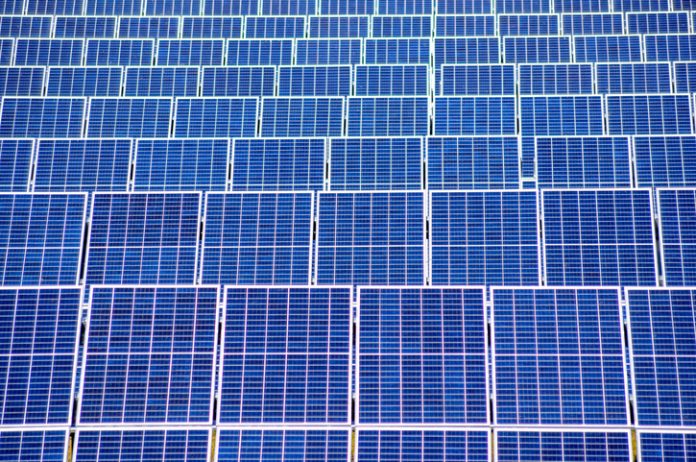By Benjamin Zycher
The joy of spending huge amounts of tax dollars — Other People’s Money — is a truth obvious and eternal, but the corrupting effects of a systemwide shift toward such subventions are more subtle, and vastly more destructive. That is a central implication of the massive policy favoritism now directed toward unconventional electricity — hugely expensive, unreliable, and environmentally destructive — yielding such utterly perverse results as those now manifest in California, the northeast U.S., and Europe. The corrupting effects are illustrated well by the ongoing adverse cost realities, financial mismanagement, and politicized machinations afflicting the Water and Power Authority (WAPA) of the U.S. Virgin Islands. A tempest in a teapot, you say? Not so fast.
A bit of background is useful. In 2012, the USVI’s Water and Power Authority (WAPA) chose to initiate a fuel conversion project to secure for the island’s electric power system an alternative source of energy — propane — more reliable and less expensive than the diesel-combustion turbines then in use. In July 2013, WAPA and Vitol entered into an $87 million agreement for the project. Vitol would build, own, operate, maintain, and then transfer the propane facilities to WAPA, supply liquid propane gas to WAPA, and manage the conversion of the combustion turbines. Construction costs initially were estimated to be $87 million, but the final total cost exceeded $240 million, largely because the agreed project was conducted on a “design as build” basis. In November 2016 and January 2017 Vitol provided notification that work had been substantially completed.
It cannot surprise anyone that a dispute emerged over the costs. Vitol declared in December 2019 that WAPA was in default, and suspended LPG deliveries over nonpayment. The suspension of deliveries subsequently was lifted, but the WAPA refusal to repay the debt owed Vitol — even the $87 million originally estimated — has persisted to this day.
Enter the perverse incentives attendant upon federal subsidies. In the wake of Hurricane Maria and the Covid downturn, USVI/WAPA has received since 2017 over $8 billion from the federal government, including massive amounts for a transition to a 100 percent solar power system. Accordingly, up in smoke goes the need for the fuel conversion project, in the view of the USVI politicians and the WAPA executives, under their deeply dubious assumption that an electricity system powered by sunlight can work cheaply and reliably.
Nor can it surprise anyone that the USVI government would be very pleased indeed were Washington to assume the costs for their solar buildout. Earlier this month the Federal Emergency Management Agency announced that it would provide a multi-million dollar grant as the down payment on this poorly-conceived transition. According to FEMA they will work with WAPA to “continue their partnership to energize a legacy for renewable energy sources.”
And therefore up in smoke too goes the incentive for USVI/WAPA to pay the debt owed Vitol. Governor Albert Bryan expects more federal financial assistance for the buildout of the solar power system, while WAPA CEO Andrew Smith believes that the solar buildout would be “effectively free” because of subsidies from the federal government. Smith argues, amazingly, that “Propane is more expensive than solar would be [because] you have to pay for equipment but [solar] is effectively free.”
Wow. Has Smith never heard of the low capacity factors afflicting solar (and wind) facilities — sunlight is not available at all times — the need for conventional (gas) backup units to preserve system reliability, and all the other problems characterizing solar electricity? (The Energy Information Administration: $39.94 per MWh for combined-cycle gas generation; $151.69 per MWh for solar plus backup.) Smith apparently has never thought to ask why the subsidies are needed if indeed solar power is “free.” This guy is running an electric utility system?
Never mind. The problem is far broader than the disincentive engendered by federal solar subsidies to repay the USVI/WAPA debt to Vitol. WAPA, to be blunt, is not swimming in cash. Its Fitch rating is negative. It has $434 million in long-term debt and another $296 million in other long-term liabilities. (The USVI population is about 106,000.) In the obvious view of the USVI political class and the WAPA executives, repayment of an entirely valid debt owed Vitol is a low priority, as their interests would be served far more centrally with different uses for scarce dollars, in particular given that their time horizon is far shorter than that relevant for the longer-term health of the USVI economy as a whole.
…
Read the rest at RealClearEnergy. Originally published by RealClearEnergy. Republished with permission.



























The sun shines most of the time in USVI. Beyond that, hurricane’s tend to blow flat things, like solar panels, away.